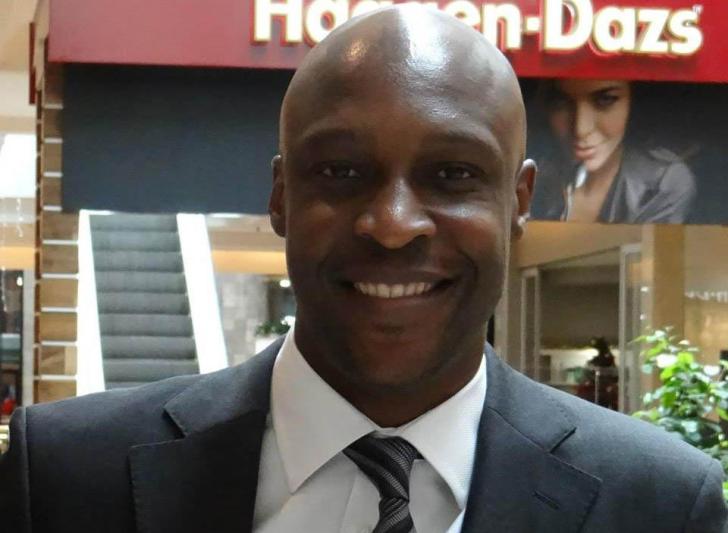News / National
More trouble brewing for Rutendo Matinyarare
08 Mar 2024 at 13:38hrs |
0 Views

Legal trouble is brewing against Rutendo Matinyarare as the chickens come home to roost over unfounded and defamatory allegations leveled against grain millers. In a recent development that has stirred controversy and legal repercussions, Rutendo Matinyarare, a controversial figure known for his unfiltered outspokenness, has been instructed to take down all posts targeting the Grain Millers Association of Zimbabwe (GMAZ). Matinyarare's accusations against the GMAZ include claims of importing poisonous , cancer-causing grains into the country, sparking a heated debate on social media and beyond.
Matinyarare, no stranger to scandalous allegations and sensationalized claims, has a history of making inflammatory statements without substantial evidence to back them up. Past instances include slandering Rwandan President Paul Kagame and accusing him of heinous crimes, directly contradicting the spirit of diplomatic re-engagement advocated by Zimbabwean President, Emmerson Mnangagwa. The malicious claims against President Kagame had a negative effect on Harare and Kigali's relationship.
In another high-profile incident in 2018, Matinyarare publicly accused business magnate Strive Masiyiwa of murder, prompting legal action from Masiyiwa's legal team to address the unfounded claims.
The trend of Matinyarare's inflammatory rhetoric and tendency to stir up trouble without facing the consequences of his actions has raised concerns within the public sphere. Despite the damage caused by his malicious claims, there has been a noticeable lack of accountability and repercussions for Matinyarare's actions. This pattern of behavior has left many questioning the ethical standards and potential harm of unchecked misinformation in the media landscape.
As the saga unfolds between Matinyarare and the GMAZ, the broader implications of unchecked misinformation in public discourse and the responsibility of individuals to verify facts before making damaging allegations come to the forefront. The case serves as a stark reminder of the power and pitfalls of social media platforms and the urgent need for accountability in the era of digital communication.
Amidst the swirling controversy and legal implications, the fate of Rutendo Matinyarare and his track record of making sensational claims remains uncertain. Will the current directive to remove posts against the GMAZ mark a turning point in his approach to public commentary, or will it be a continuation of a pattern with potentially far-reaching consequences? Only time will reveal the answer to this question as the unfolding drama continues to captivate and divide audiences.
The Matinyarare case further strengthens the need for a social media regulatory body in Zimbabwe. The case is shedding light on the complexities of media ethics, responsibility, and the consequences of unchecked misinformation in the digital age.
Matinyarare, no stranger to scandalous allegations and sensationalized claims, has a history of making inflammatory statements without substantial evidence to back them up. Past instances include slandering Rwandan President Paul Kagame and accusing him of heinous crimes, directly contradicting the spirit of diplomatic re-engagement advocated by Zimbabwean President, Emmerson Mnangagwa. The malicious claims against President Kagame had a negative effect on Harare and Kigali's relationship.
In another high-profile incident in 2018, Matinyarare publicly accused business magnate Strive Masiyiwa of murder, prompting legal action from Masiyiwa's legal team to address the unfounded claims.
The trend of Matinyarare's inflammatory rhetoric and tendency to stir up trouble without facing the consequences of his actions has raised concerns within the public sphere. Despite the damage caused by his malicious claims, there has been a noticeable lack of accountability and repercussions for Matinyarare's actions. This pattern of behavior has left many questioning the ethical standards and potential harm of unchecked misinformation in the media landscape.
As the saga unfolds between Matinyarare and the GMAZ, the broader implications of unchecked misinformation in public discourse and the responsibility of individuals to verify facts before making damaging allegations come to the forefront. The case serves as a stark reminder of the power and pitfalls of social media platforms and the urgent need for accountability in the era of digital communication.
Amidst the swirling controversy and legal implications, the fate of Rutendo Matinyarare and his track record of making sensational claims remains uncertain. Will the current directive to remove posts against the GMAZ mark a turning point in his approach to public commentary, or will it be a continuation of a pattern with potentially far-reaching consequences? Only time will reveal the answer to this question as the unfolding drama continues to captivate and divide audiences.
The Matinyarare case further strengthens the need for a social media regulatory body in Zimbabwe. The case is shedding light on the complexities of media ethics, responsibility, and the consequences of unchecked misinformation in the digital age.
Source - Byo24News
Join the discussion
Loading comments…

































